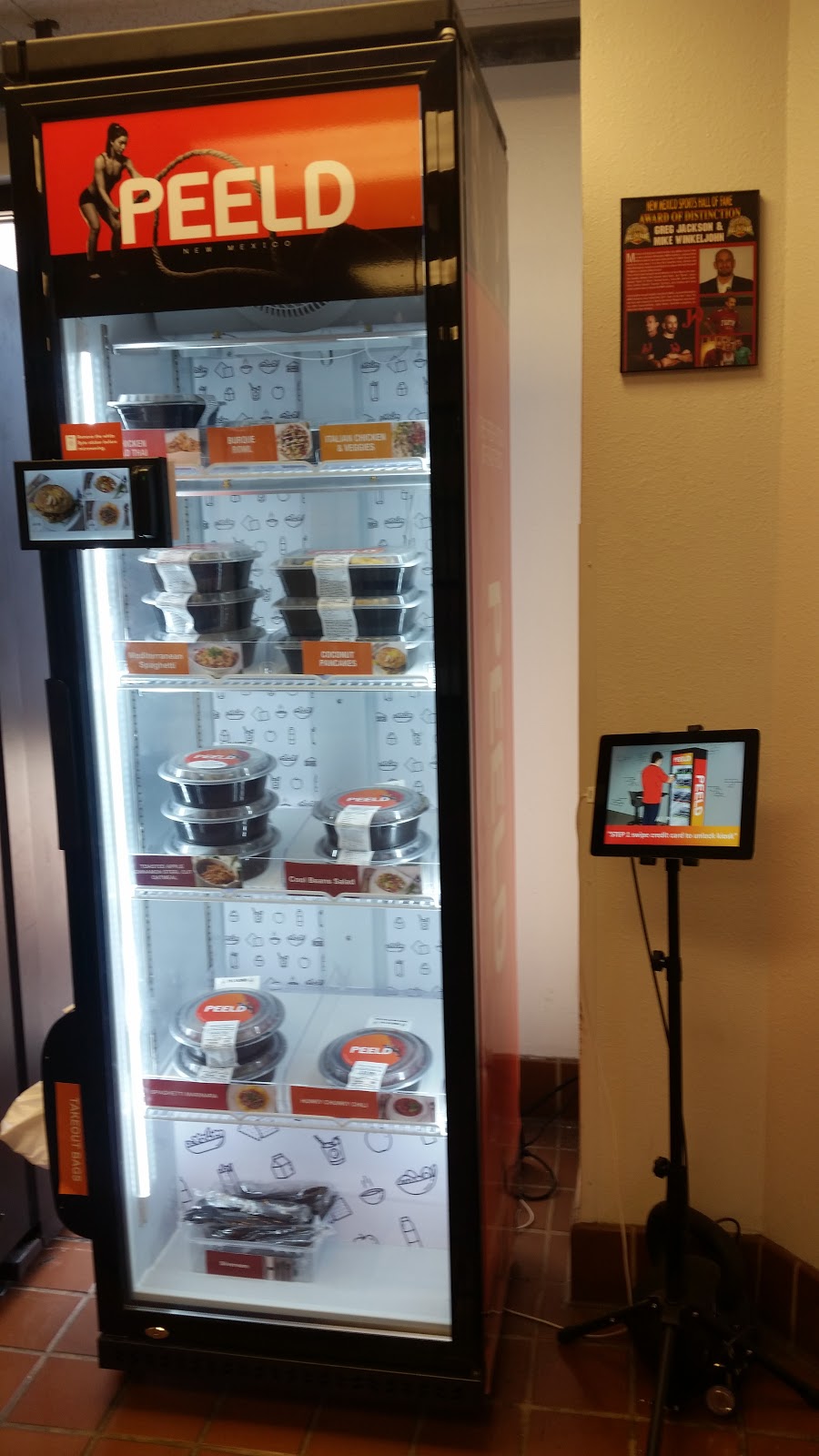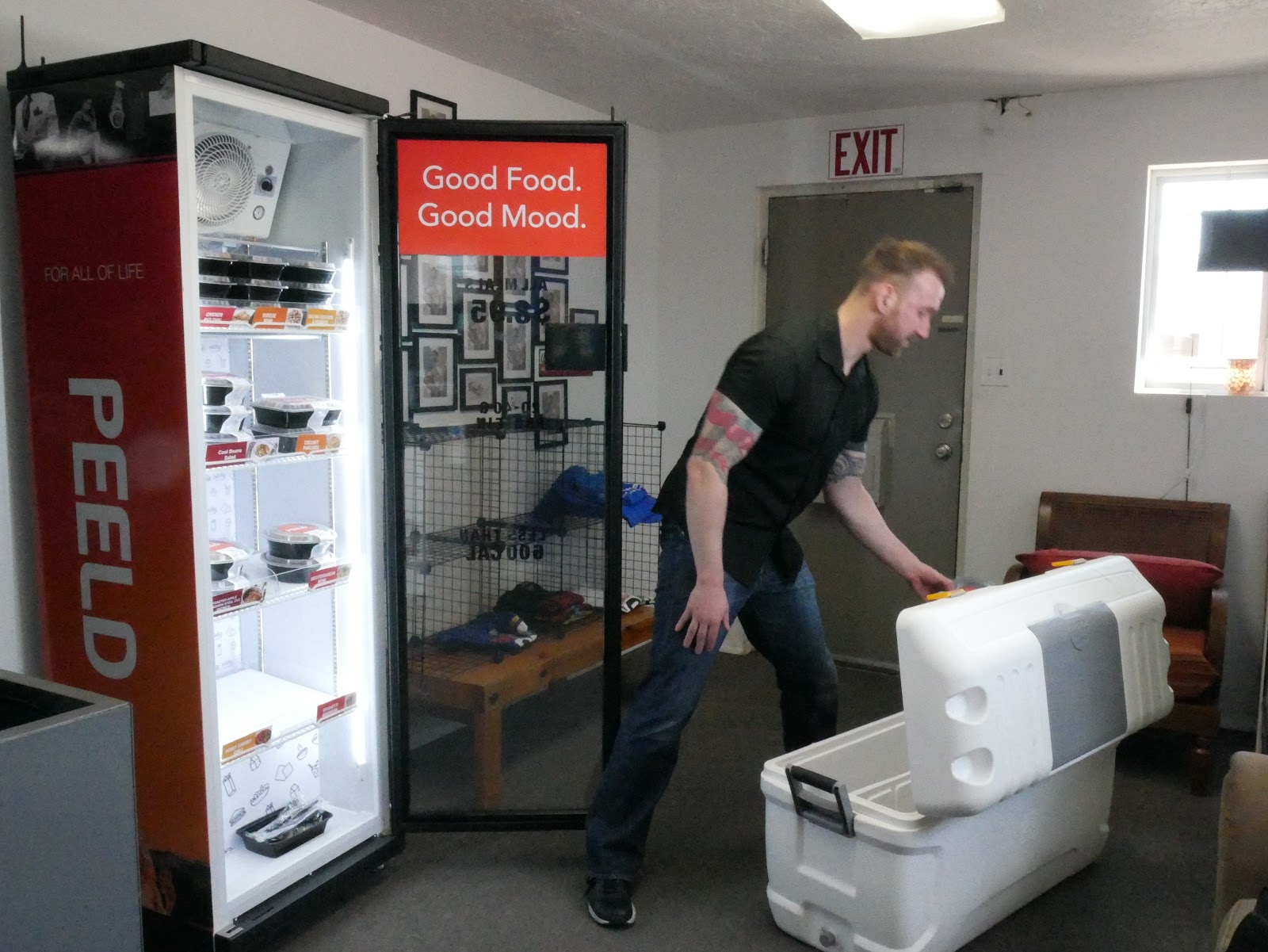
Entrepreneur Noah Price quit his job as a medical sales representative to found a four month old startup Peeld. The company is a meal prep service with delivery and automated kiosks designed to be a part of the solution for consumers who want to eat efficiently and healthy.
“Our goal is to be like the Redbox of fresh food,” said Price.
Price is a graduate from The University of New Mexico with a concentration in Entrepreneurial Studies.
“I was that kid selling lemonade on the side of the road and I’ve always known I wanted to own a business,” said Price.
A visit to Whataburger with a friend, Price said, solidified his decision to start his meal prep business.
“I wasn’t ordering anything and a lady that worked there was intrigued. She shared that she had tried several diets that weren’t working. I know the reason 90 percent of diets fail,” said Price. “People lose weight or gain weight because caloric restriction doesn’t work long term. I knew how to design meals to help this lady.”
The driving force behind all of Peeld meals is satiety, the feeling of being full, said Price.
“Healthy food doesn’t necessarily leave you feeling full. You can have something that’s really healthy but it’s not going to leave you full from the amount of calories it has,” said Price.
It took Price about five months to launch Peeld.
“The idea really just kind of evolved. I worked at it every night figuring out details and it went from this rough idea to a fine tuned plan,” said Price.
Price’s business plan evolved through trial and error. Originally he planned to sell to gyms and let them resell the meals, but found out that he couldn’t because of FDA regulations.
“That’s where I started researching and I found the kiosks,” said Price.

Price saves overhead costs by not having a storefront. The overall cost to start Peeld was roughly $75,000 — money he saved over the years so he could self-finance the majority of startup costs, he said. After six weeks in business, an investor also contributed $10,000 to Peeld.
Price didn’t start delivering meals until seven weeks ago but he said it is the most lucrative side of his business. The online delivery allows customers to choose their meals for the week and the time that they would like for them to be delivered. Peeld delivers twice a week and the meals are cooked in large quantities the day before delivery.
Peeld also has a four week challenge program in which participants receive three meals a day at a cost of $7.95 a meal and work towards the goal to lose ten inches or pounds overall. If they are successful, they receive 84 free meals.
“The purpose is not to lose weight, the purpose is to change their lifestyle and to change their relationship with food for the rest of their lives,” said Price.
Customers who aren’t a part of the four week challenge pay $8.95 a meal. Price said Peeld is out-pricing the competition and delivers higher quality ingredients and better taste.
“Most people don’t have a ton of extra money to spend on food, so it breaks down to $166 a week. So, I’m trying to make it affordable for people,” said Price.
Eating out accounts for 43 percent of the yearly food costs for the average family according to the Bureau of Labor Statistics. The average American eats 18.2 meals a month prepared outside of the home. The average meal outside of the home costs $12.75, resulting in an average of $232 per month spent eating out, reports The Simple Dollar.
Peeld describes itself as “The fresh food of fast food,” and to meet consumers demand for convenience, Peeld distributes meals through automated kiosks established at different locations throughout Albuquerque. There are currently five, soon to be six kiosk locations: Omni Strength, Liberty Gym, Performance Ranch, Jackson Wink and Pima Medical Institute. The sixth kiosk will be in an office location, said Price.
In the future Price would like to expand to more office locations, he said. Most people eat their meals for lunch so that is Peeld’s biggest crowd, said Price.
“The nice thing about office locations and what they like is they’re more productive at work. If you eat healthy you’re going to be more energized and more motivated,” said Price.
A Staples U.S workplace survey reported 80 percent of workers believe that employers have a responsibility to keep employees mentally and physically well.
In Silicon Valley healthy eating options in facilities and tech companies like Google and Facebook are not a perk, they’re a given. In 2008, Google spent $80 million a year on food costs for their employees, according to Business Insider.
Not many companies offer free healthy meals but consumers are still willing to pay more for them. According to a 2015 Nielsen Global Health and Wellness Survey, 88 percent of 30,000 individuals surveyed were willing to pay more for healthier foods. All demographics said they would pay more for healthy foods, however Generation z and Millenials were the most willing generations to pay a premium.

Price said he’s been really encouraged by the feedback so far. “People love the way they taste and they notice that it’s really filling,” said Price.
Peeld currently has two paid employees: a chef and an individual who weighs and packages the meals. Price designed the initial menu and collaborates with the chef to create additional items. Peeld’s ingredients come from several different distributors like Agri-Cultura, a local non profit that sells sustainably grown local produce to restaurants, institutions and families.
Price wants to expand Peeld nationwide but wants it to be known for starting in Albuquerque.
“I want to put Albuquerque on the map for something positive,” said Price.
For more follow Maria on Twitter.